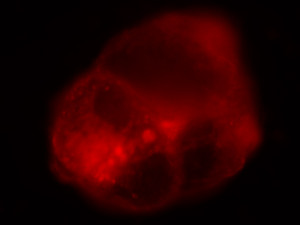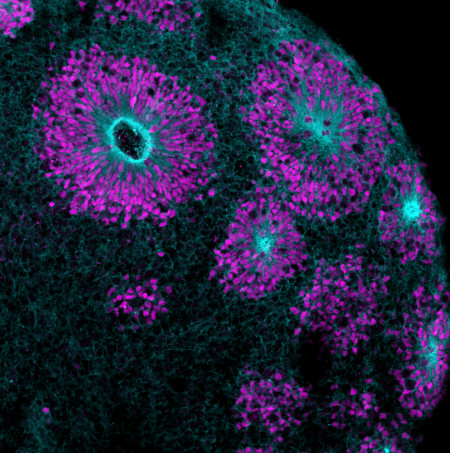This World Heart World Day, Luminesce Alliance funded researchers from the Stem Cell and Organoid Facility at the Children’s Medical Research Institute (CMRI) are generating awareness around their lab made “mini-hearts”. Mini-hearts, also known as cardioids, are generated from stem cells in a dish and can be used to study heart diseases and for testing potential new treatments.
The Stem Cell and Organoid Service Facility located at the Children’s Medical Research Institute is the first service facility in Australia to offer organoids derived from pluripotent stem cells to researchers in NSW and Australia. To make cardioids, they first generate pluripotent stem cells from adult cells, such as blood and then convert these into beating tissue. Cardioids promise to have greater maturity than cells grown in 2D cultures, a crucial characteristic to enhance heart research programs.

The team at the Stem Cell and Organoid Facility is developing a variety of organoids that can be derived from control and diseased stem cells. Apart from cardioids, the team has generated eye and brain organoids and they are also working on generating mini-kidneys and pancreas. These mini-organs provide ideal models to investigate biology of many human tissues and organs. They can show researchers how organs form and provide new insights on disease mechanisms.
Dr Anai Gonzalez-Cordero, the Head of the Stem Cell and Organoid Facility and the Stem Cell Medicine Group at CMRI uses retinal organoids to develop genetic therapies for inherited blinding eye diseases and says, ‘Organoids can be generated from patient’s own cells and in these cases, they mimic the disease present in individuals. This type of precision medicine promises to help the development of efficacious treatments that can now be tested in human cells and organs.”
The Stem Cell and Organoid Facility goal is to create a broadly available resource of stem cell-derived organoids to accelerate translational research. Learn more or contact CMRI today about utilising organoid technology in your research.


